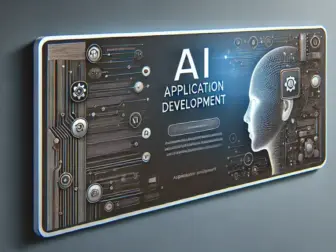Tag - AI best practices
AI Best Practices: Ensuring Success in Implementing Artificial Intelligence
Artificial Intelligence (AI) has become a game-changer for businesses across various industries, offering opportunities for increased efficiency, productivity, and innovation. However, implementing AI successfully requires careful planning and adherence to best practices to ensure optimal results. Below are some key best practices to consider when integrating AI into your organization:
1. Define Clear Objectives
Before embarking on an AI project, it is crucial to clearly define your objectives and goals. Identify specific problems or challenges that AI can help solve, whether it’s optimizing business processes, improving customer service, or enhancing decision-making. By setting clear objectives, you can design an AI solution that aligns with your business needs and objectives.
2. Data Quality and Governance
Data is the lifeblood of AI, and the quality of your data can significantly impact the performance of your AI models. Ensure that your data is accurate, relevant, and up-to-date before feeding it into your AI algorithms. Implement robust data governance practices to maintain data quality, security, and compliance throughout the AI project lifecycle.
3. Choose the Right AI Technologies
AI encompasses a wide range of technologies, including machine learning, deep learning, natural language processing, and computer vision. Select the appropriate AI technologies based on your use case and requirements. Consider factors such as the complexity of the problem, the availability of data, and the skills of your team when choosing the right AI tools and frameworks.
4. Build a Skilled AI Team
Building and maintaining AI solutions require a multidisciplinary team with expertise in data science, machine learning, software development, and domain knowledge. Invest in training and upskilling your team to ensure they have the necessary skills and knowledge to design, develop, and deploy AI solutions effectively. Collaboration between data scientists, engineers, and business stakeholders is essential for the success of AI projects.
5. Experiment and Iterate
AI projects often involve trial and error, as it may take several iterations to develop an effective AI model. Encourage a culture of experimentation and iteration within your organization to continuously improve your AI solutions. Test different algorithms, parameters, and data sources to optimize the performance of your AI models and drive better outcomes.
6. Monitor and Evaluate Performance
Once your AI solution is deployed, it is essential to monitor its performance and evaluate its impact on key metrics and KPIs. Implement monitoring tools and processes to track the performance of your AI models in real-time and identify any issues or anomalies. Regularly evaluate the effectiveness of your AI solution and make adjustments as needed to ensure it continues to deliver value to your organization.
7. Ensure Ethical and Responsible AI
As AI becomes more prevalent in business operations, it is crucial to ensure that AI systems are developed and used ethically and responsibly. Consider the potential ethical implications of AI, such as bias, privacy, and transparency, and implement measures to mitigate these risks. Establish ethical guidelines and governance frameworks to guide the development and deployment of AI solutions in a responsible manner.
By following these best practices, organizations can increase the likelihood of success in implementing AI and harness the full potential of artificial intelligence to drive innovation, efficiency, and competitive advantage.
